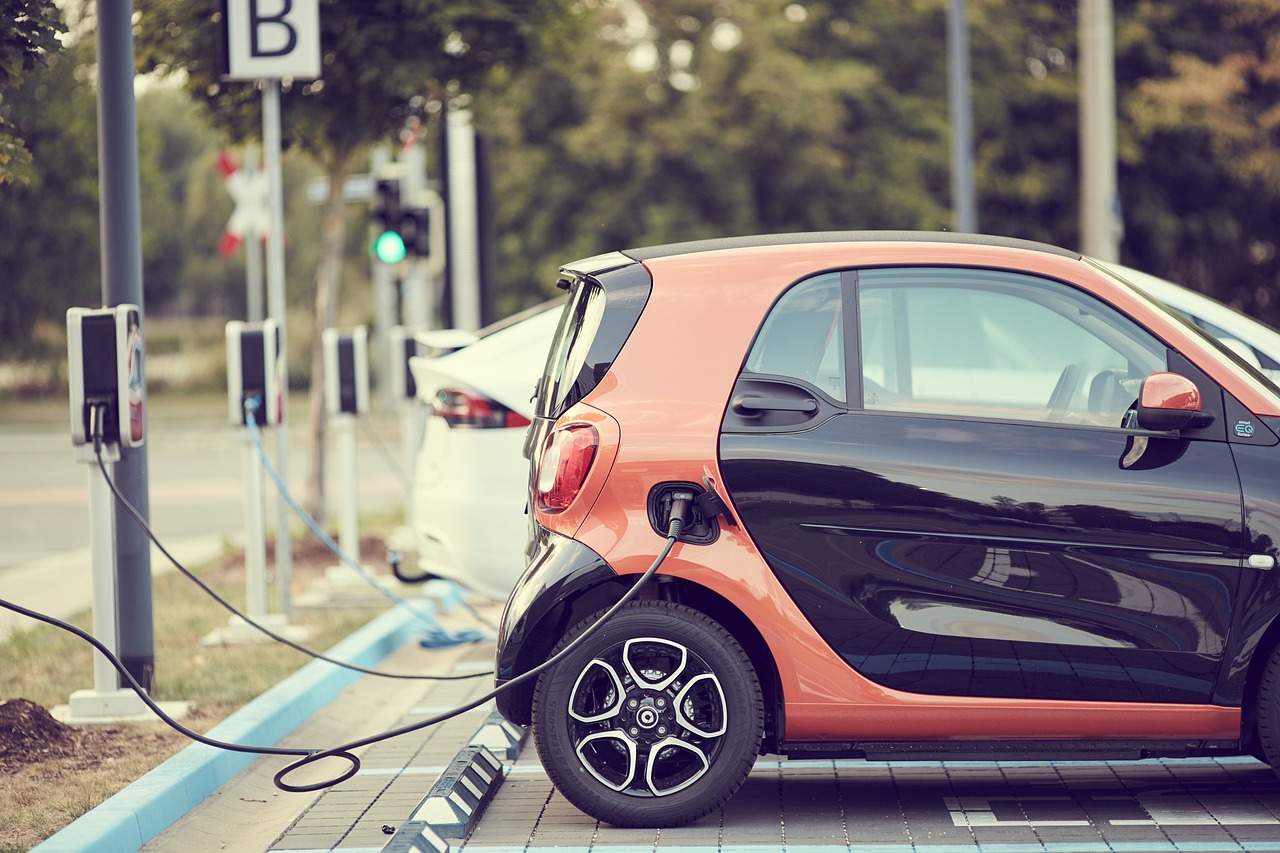
Adopting electric vehicles aligns with environmental goals for enterprises possessing fleets and presents an opportunity for economically efficient operations. One of the key aspects of successfully integrating electric vehicles into a fleet is the informed choice of a charging solution. In this blog, we delve into the significance of electric vehicle fleets, the factors contributing to their success, and how Joint emerges as your trustworthy partner, ensuring seamless fleet charging.
What is an Electric Vehicle Fleet?
What is an electric vehicle fleet? An electric vehicle fleet is a group of vehicles to do business or carry out business activities. Unlike traditional fuel fleets, electric vehicles are composed of electric vehicles, including various electric vehicles, such as electric cars, trucks, and buses. Some organizations or businesses run their businesses by managing fleets of electric vehicles. Today, as electric cars have longer and longer ranges, "range anxiety" is broken, and more and more fleet operators are switching from fuel-powered fleets to electric vehicle fleets.
Four Factors for the Successful Operation of EV Fleets
1.Understanding EV Charger Types:
A comprehensive comprehension of diverse electric vehicle charger types is paramount to establishing a thriving electric vehicle fleet. Whether slow, fast, or rapid, each possesses advantages. Fleet managers should choose a combination that aligns with their operational needs and vehicle requirements.
Electric vehicle chargers come in three categories: Level 1 electric vehicle chargers, Level 2 electric vehicle chargers, and Level 3 electric vehicle chargers. Level 1 and Level 2 electric vehicle chargers utilize alternating current (AC), exhibiting relatively slow charging speeds, especially Level 1 electric vehicle chargers.
• Level 1 Electric Vehicle Charger:
Level 1 portable electric vehicle chargers wield modest power as the fundamental residential charging solution. In the United Kingdom and the United States, Level 1 electric vehicle chargers operate at 12 amperes, typically at 120 volts.
Level 1 EV chargers consist of cables and plugs, a power adapter, a controller, electronic components, a charging coil, and a heat dissipation system. It has a simple structure can provide charging support for electric vehicles through standard household power sockets.
The charging speed of Level 1 electric vehicle chargers is relatively slow, typically ranging between 3 to 5 miles per hour, this implies that you may accrue approximately 30 to 50 miles of driving range during an overnight charging session on an electric vehicle.
For instance, we are assuming an electric vehicle battery capacity of 40 kilowatt-hours (kWh) and an output of 12 amperes and 120 volts for the Level 1 charger. Ideally, the process might take approximately 8 to 13 hours, from empty to full battery.
Certainly, the speed of Level 1 electric vehicle chargers needs to be increased for electric trucks and larger-capacity electric vehicles. Hence, as discussed below, Level 2 and Level 3 electric vehicle chargers become the optimum choice for electric vehicle fleets.
• Level 2 Electric Vehicle Charger:
Level 2 EV chargers operate at a voltage (typically 240 volts), which provides higher power to the vehicle and significantly reduces charging time compared to Level 1 chargers. Level 2 electric chargers find widespread applications in residential areas, workplaces, and public spaces. As a commercial charging solution, Level 2 chargers offer various connector types, such as SAE J1772 or Type 2, ensuring compatibility with many electric vehicle models.
Compared to standard Level 1 chargers, Level 2 chargers exhibit markedly faster charging speeds, which is particularly critical for electric vehicle fleets. Level 2 electric vehicles expedite charging, minimizing parking duration, and ensuring optimal operational efficiency.
Some Level 2 charging devices feature smart charging, dynamic load balancing, and remote monitoring capabilities, allowing fleet managers to monitor charging sessions remotely, track energy consumption, and optimize charging plans. Meanwhile, Level 2 chargers provide fleets stationed in warehouses or garages with the convenience of overnight charging. Smart charging capabilities can help fleet operators save on charging costs by taking advantage of off-peak electricity prices.
• Level 3 Electric Vehicle Charger:
Level 3 fast charging stations (DC fast charging stations) charge power from 50 kilowatts (kW) to more than 350 kilowatts and can charge 80% of the battery capacity in 20-30 minutes.
Level 3 chargers use a variety of connectors that support DC fast charging, such as CHAdeMO, CCS (Combined Charging System), and Tesla Super Chargers, to meet different electric vehicle models and charging standards.
Level 3 fast charging stations can meet the rapid charging needs of EV fleets. First, Level 3 chargers charge very quickly. Level 3 fast charging stations have a charging power of more than 350 kilowatts and can charge 80% of the battery capacity in 20–30 minutes. They enable fleet vehicles to top up their batteries during scheduled breaks or stops, ensuring trams can travel longer distances.
In addition, EV fleet operators may consider partnering with charging network providers and EV charger wholesalers to Level 3 fast charging stations on the fleet's main travel routes, allowing the fleet to optimize travel plans and reduce total travel time.
Whether it is a delivery fleet, taxi service, or corporate fleet, Level 3 fast charging stations can be a reliable and fast charging solution for EV fleet operators.

2.The Best Electric Vehicle Charging Solution
Choosing the right charging solution is key to the success of your electric vehicle fleet. Electric vehicle charger dealers can provide the most suitable electric vehicle charging solution for your electric vehicle fleet based on the size and operational needs of the fleet. Here are the key considerations for the best EV fleet charging solution:
3.Reliable Charging Network and Infrastructure
A reliable EV charging network is the foundation for the uninterrupted operation of a fleet. Choosing robust charging infrastructure with real-time monitoring capabilities ensures vehicles are always available, enhancing fleet efficiency and reliability.
Electric vehicle fleets require charging infrastructure, including charging stations compatible with electric trucks and vans. Today, governments worldwide are investing in charging infrastructure to support the growth of electric vehicles. Electric vehicle charging companies are also developing innovative solutions to meet drivers' needs. Robust electric vehicle charging infrastructure and networks are crucial for efficiently operating electric vehicle fleets.
4.Formulating a Reasonable Future Development Plan
A development plan considering technological advancements and potential fleet expansion is necessary to future-proof your electric vehicle fleet. Understanding industry trends, emerging technologies, and government incentives is crucial for making informed decisions aligning with long-term sustainable development goals.
Joint: Tailor-made charging solutions for your EV fleet
Joint's electric vehicle chargers are produced specifically for electric vehicle fleets. We provide professional electric vehicle charging equipment and accessories, such as level 2 dual-port electric vehicle chargers, level 2 commercial electric vehicle chargers, DC fast chargers, charging cable managers, charger adapters, charger pedestal, etc. In addition, our products also have functions such as smart charging, dynamic load balancing, plug and charge, fault detection, etc., and have passed CE, ETL, UKCA, Energy Star, and other certifications.
Joint's electric vehicle charging solutions are designed to increase fleet sustainability, efficiency, and convenience. Through intelligent charging management, customizable charging equipment, and innovative technology, Joint provides fleet operators with the most advanced and customized charging solutions, helping them realize a clean, energy-driven future.
Post time: Jan-19-2024
